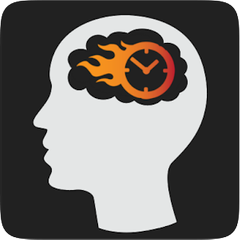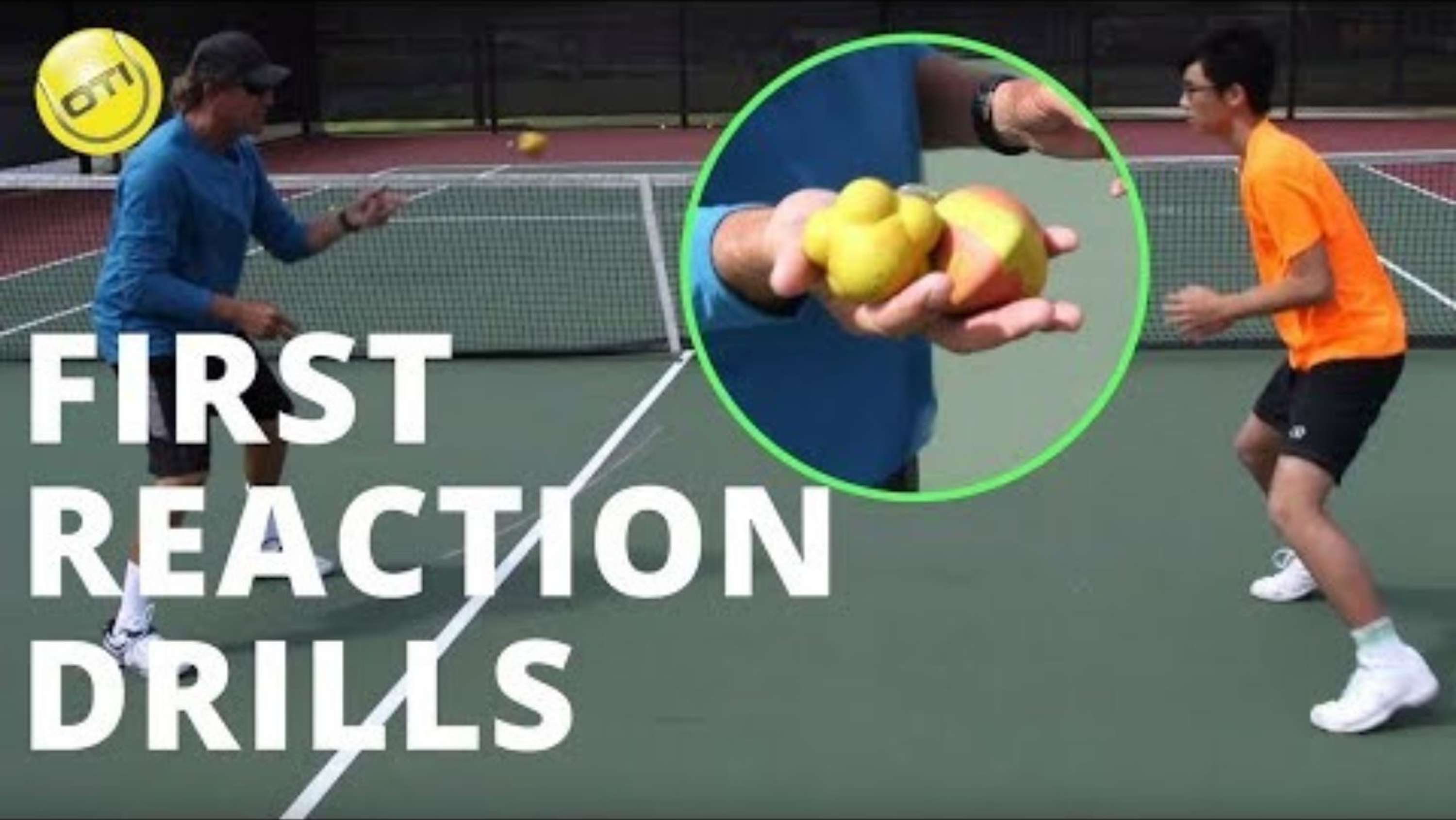The online reaction time test is a powerful tool for investigating cognitive functions, identifying neurological problems, gauging driving ability, or tracking the success of rehabilitation.
This article explores the fascinating topic of reaction time, including whether it can be enhanced through exercise or training, the effects of ageing, how fatigue and lack of sleep affect reaction time, and the various ways reaction time test are used in both clinical and academic settings. The first consideration is if practise or training can increase reaction time. The goal of our research is to identify the possibility for people to enhance their response time skills. We do this by analysing various training approaches and methodologies.
We'll then examine how ageing affects reaction times. Reaction times may fluctuate over the course of a person's life due to modifications in neuronal processing, sensory perception, and motor responses. By analysing the research findings, we hope to shed insight on how ageing affects reaction times and uncover potential preventative measures.
Next, we look at how sleep deprivation and exhaustion affect reaction times. Lack of sleep and exhaustion are known to impair cognition and judgement, but further research is needed to determine how they specifically affect reaction speed.
Finally, we take into account the application of reaction time tests in academic and medical settings. Reaction time tests give researchers and medical professionals precise assessments of cognitive function that aid in the understanding, diagnosis, and treatment of a wide range of illnesses.
Improve your Reaction Time through Practice or Training :
Reaction time can be improved through practice and training. While an individual’s baseline reaction time is influenced by various factors, including genetics and age, research suggests that reaction time can be enhanced with targeted practice and training techniques.
Here are a few approaches that have shown promise in improving reaction time:
1. Specific Reaction Time Training : Engaging in reaction time-specific exercises and drills can help improve the speed and accuracy of responses. These exercises often involve repetitive tasks that require rapid reaction to stimuli, such as visual cues or auditory signals. By consistently practicing these tasks, individuals can develop better neural pathways and improve their overall reaction time.
2. Cognitive Training : Certain cognitive training programs focus on improving reaction time by enhancing attention, perception, and processing speed. These programs often utilize computer-based exercises and interactive tasks that challenge individuals to respond quickly and accurately to stimuli. By training the brain to process information more efficiently, individuals can experience improvements in their reaction time.
3. Sports-Specific Training : Athletes can improve their reaction time through sports-specific training drills that mimic the demands of their sport. These drills focus on developing anticipation, quick decision-making, and motor responses. By practicing and simulating game-like scenarios, athletes can train their reactive abilities and enhance their overall performance.
4. Multisensory Training : Incorporating multiple senses into reaction time training can be beneficial. By training the brain to integrate information from different sensory modalities, such as visual and auditory cues, individuals can improve their ability to process and respond to stimuli more rapidly.
5. Neurofeedback : Neurofeedback techniques involve real-time monitoring and feedback of brain activity to help individuals learn to self-regulate their cognitive processes. By providing feedback on brainwave patterns associated with attention and processing speed, individuals can learn to modulate their neural activity and potentially improve their reaction time.
It’s important to note that the extent of improvement may vary among individuals, and practice effects may be specific to the trained tasks.
Furthermore, the transfer of improved reaction time to real-world scenarios may also depend on task-specific and contextual factors.
Overall, while reaction time can be improved through practice and training, consistent and targeted efforts are required. By engaging in specific exercises, cognitive training, sports-specific drills, and other techniques, individuals can enhance their reaction time abilities and potentially optimize their performance in various activities and sports.
Age-related Changes in Reaction Time :
Age-related changes in reaction time are commonly observed. As individuals age, there tends to be a gradual decline in reaction time.
Several factors contribute to these age-related changes:
1. Biological Factors : Aging leads to changes in the brain and nervous system. The processing speed of neural signals may slow down, resulting in longer reaction times. Structural changes in the brain, such as reduced volume and connectivity, can also impact information processing and response initiation.
2. Sensory Decline : Age-related declines in sensory functions, particularly vision and hearing, can affect reaction time. Diminished visual acuity, slower visual processing, and decreased auditory perception may contribute to longer reaction times in older individuals.
3. Motor Decline : Age-related changes in muscle strength, coordination, and motor control can influence reaction time. Slower motor responses and reduced ability to execute rapid movements may contribute to longer reaction times in older adults.
4. Cognitive Processing Changes : Aging is associated with changes in cognitive processes, including attention, working memory, and executive functions. These changes can impact the ability to perceive and process information quickly, leading to longer reaction times.
It’s important to note that age-related changes in reaction time are not uniform across all individuals. There is considerable variability, and some older adults may exhibit relatively preserved reaction times compared to their peers.
Factors such as overall health, lifestyle, physical fitness, and cognitive engagement can influence individual differences in age-related changes in reaction time. While there is a general trend of declining reaction time with age, it is crucial to consider that older adults can still maintain functional reaction times for daily activities and tasks.
Moreover, experience and expertise gained over the years can compensate to some extent for age-related changes, allowing older individuals to perform well in domains where they have acquired extensive knowledge and skills.
Understanding age-related changes in reaction time is valuable for assessing cognitive and motor function in older adults, designing interventions to support healthy aging, and developing strategies to optimize performance and safety in activities that rely on rapid responses.
How does fatigue or lack of sleep affect reaction time?
Fatigue and lack of sleep have a significant impact on reaction time. When individuals are fatigued or sleep-deprived, their cognitive functioning and physical performance can be compromised, including their ability to react quickly.
Here’s how fatigue and lack of sleep affect reaction time:
1. Slowed Cognitive Processing : Fatigue and sleep deprivation can slow down cognitive processing speed. The brain requires adequate rest to function optimally, and when fatigued or sleep-deprived, the efficiency of information processing is reduced. This can result in delayed reactions and longer response times.
2. Impaired Attention and Alertness : Fatigue and lack of sleep can lead to decreased alertness and difficulties in sustaining attention. Attention is crucial for detecting and processing relevant stimuli quickly. When fatigued, individuals may struggle to maintain focus and be less vigilant, which can negatively impact their reaction time.
3. Reduced Decision-Making Abilities : Fatigue and sleep deprivation can impair decision-making processes. Fatigued individuals may have difficulties in accurately assessing situations and making quick and appropriate choices. This can lead to delayed reactions and slower decision-making, affecting overall reaction time.
4. Decreased Motor Coordination : Fatigue and lack of sleep can impair motor coordination, resulting in slower and less precise movements. This can be particularly relevant in tasks that require fine motor skills and rapid motor responses. The reduced motor coordination can further contribute to prolonged reaction times.
5. Increased Risk of Errors : Fatigue and sleep deprivation increase the likelihood of errors in performance. Impaired cognitive function and slower reaction times can lead to mistakes, miscalculations, and decreased accuracy in responding to stimuli. This can have implications for safety in various contexts, such as driving or operating machinery.
It’s important to note that the effects of fatigue and sleep deprivation on reaction time can vary depending on the duration and severity of fatigue, as well as individual differences in tolerance.
Additionally, individuals may subjectively underestimate the impact of fatigue on their reaction time, leading to potential risks if engaging in activities that require quick responses.
To optimize reaction time and ensure safety, it is crucial to prioritize adequate sleep and manage fatigue effectively. Getting enough sleep, taking regular breaks during prolonged activities, and avoiding situations where fatigue can compromise performance are essential strategies to mitigate the negative impact of fatigue and sleep deprivation on reaction time.
Applications in scientific research or clinical settings :
Reaction time tests have various applications in scientific research and clinical settings.
Here are some ways in which they can be utilized:
Cognitive and Psychological Research : Reaction time tests are frequently used in cognitive psychology and neuroscience research to investigate cognitive processes such as attention, perception, memory, and decision-making. They provide objective measures of cognitive performance and help researchers understand the underlying mechanisms of these processes.
Sports Science and Performance Assessment : Reaction time tests are valuable tools in sports science for assessing athletes’ reaction capabilities and performance. They can be used to evaluate athletes’ response speed, anticipation skills, and motor reactions in sports-specific contexts. Coaches and trainers can utilize these tests to track progress, identify areas for improvement, and optimize training programs.
Neurological Assessment : Reaction time tests can serve as part of a comprehensive neurological assessment to evaluate motor and cognitive functioning. They are used to assess impairments or abnormalities in neural processing speed, attention, and reaction abilities. Clinicians can use these tests to aid in the diagnosis and monitoring of conditions such as traumatic brain injury, stroke, or neurodegenerative disorders.
Attention Deficit Hyperactivity Disorder (ADHD) Evaluation : Reaction time tests are commonly used as part of the assessment battery for ADHD. They provide objective measures of attentional control, response inhibition, and impulsivity. Reaction time deficits may indicate attentional difficulties and aid in diagnosing and monitoring ADHD. Driver Safety and Assessments : Reaction time tests can be used in assessing driver safety and performance. They can evaluate a driver’s ability to respond quickly to unexpected stimuli and their overall alertness. In clinical settings, these tests can help assess fitness to drive in individuals with neurological conditions or those recovering from brain injuries.
Rehabilitation and Occupational Therapy : Reaction time tests can be incorporated into rehabilitation programs to evaluate and track progress in motor and cognitive recovery. They can help therapists assess reaction times, motor planning, and coordination skills in individuals undergoing rehabilitation for various conditions, such as stroke, traumatic injuries, or movement disorders.
Aging and Geriatric Assessments : Reaction time tests are used to assess age-related changes in cognitive and motor functioning. They can help identify age-related declines in reaction time, attention, and processing speed. Reaction time tests may assist in evaluating the impact of interventions aimed at improving cognitive performance in older adults.
By incorporating reaction time tests into research and clinical assessments, professionals can gain valuable insights into cognitive processes, motor responses, and the impact of various conditions on reaction speed. These tests provide objective data that aid in diagnosis, treatment planning, and monitoring progress over time.
Summary :
In this article we provides a comprehensive analysis of reaction time, including opportunities for improvement through exercise or training, age-related changes, the effects of fatigue and lack of sleep, and various applications of the reaction time test.
By disclosing these aspects, we can deepen our understanding of reaction times, optimize performance, and improve the use of this compound in research and clinical practice.


